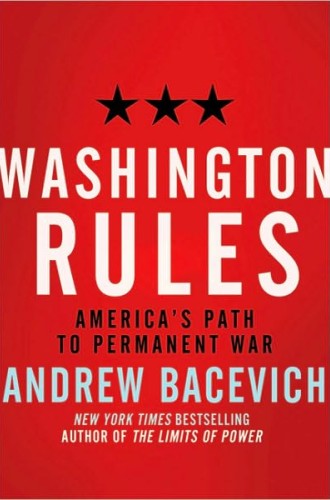A review of Washington Rules
No one has anatomized the misadventures of the wars in Afghanistan and Iraq with greater historical perspective or critical acuity than Andrew Bacevich. He is among our indispensable intellectuals, all the more so now that the cartoonish figure of George W. Bush has been removed from the equation.
Bacevich brings to the task of flaying American global ambitions a backstory that makes it hard for his critics to dismiss him or lump him with the ranks of what Barack Obama's shill-in-chief Robert Gibbs snidely derided as the "professional left."
Born in Normal, Illinois, Bacevich graduated from West Point in 1969 and served in Vietnam, Germany and the Persian Gulf before retiring from the army with the rank of colonel. He then earned a Ph.D. in diplomatic history from Princeton, and since 1998 he has taught at Boston University. In the last decade, with books such as American Empire (2002) and The New American Militarism (2005), Bacevich has established himself among professional historians as the heir to Charles Beard and William Appleman Williams—fellow Midwesterners and talented scholars who brought their learning to bear critically on the making of modern American empire in the 20th century.





